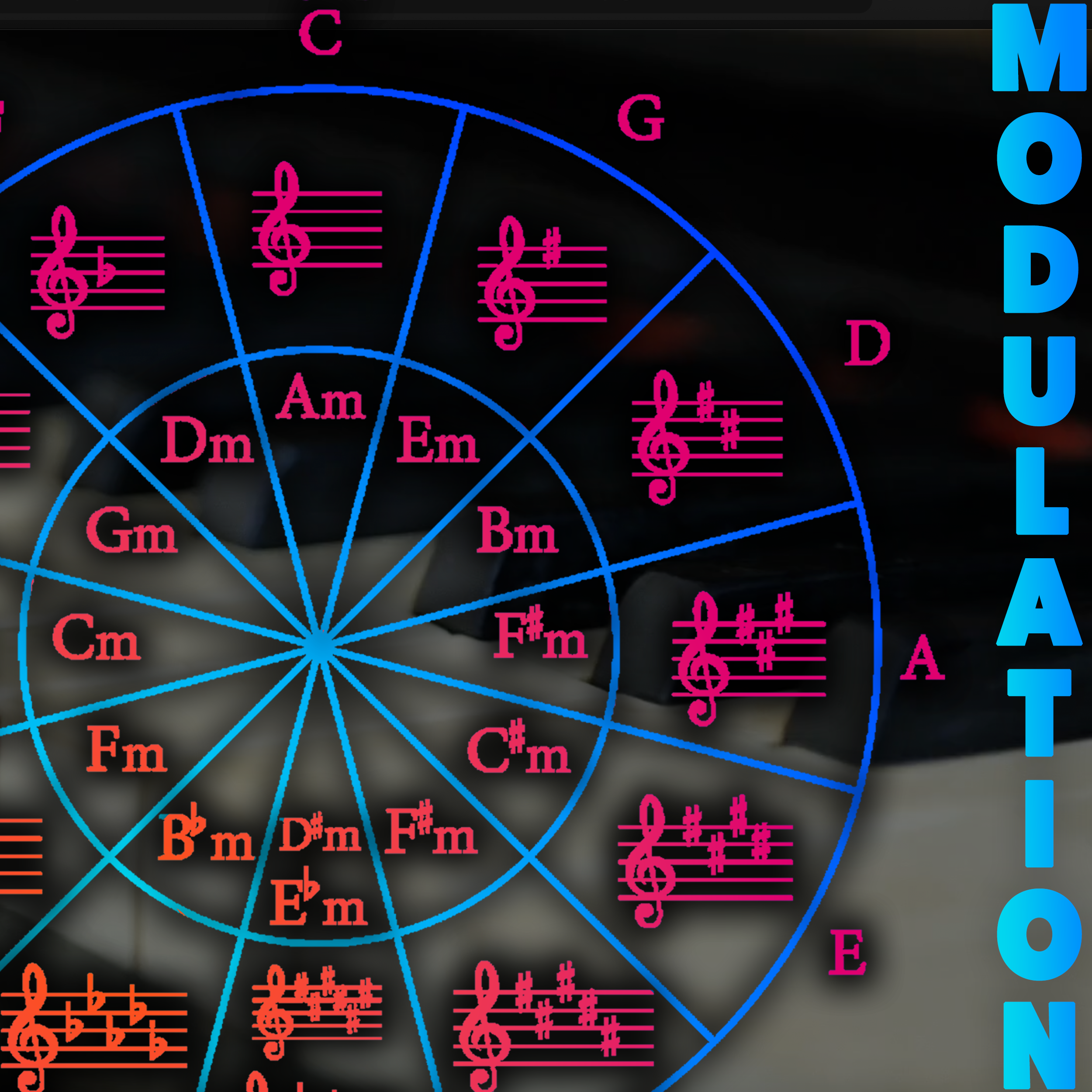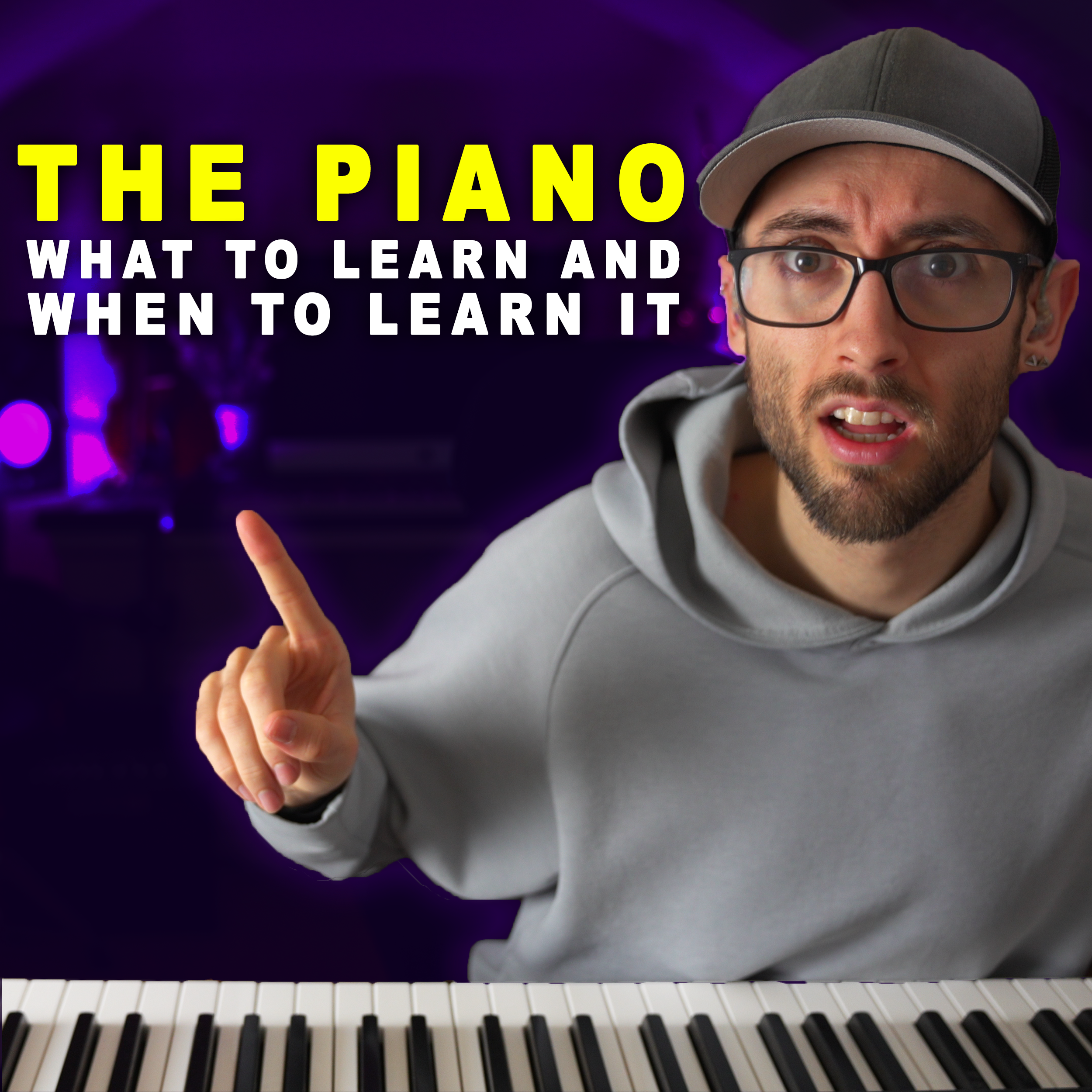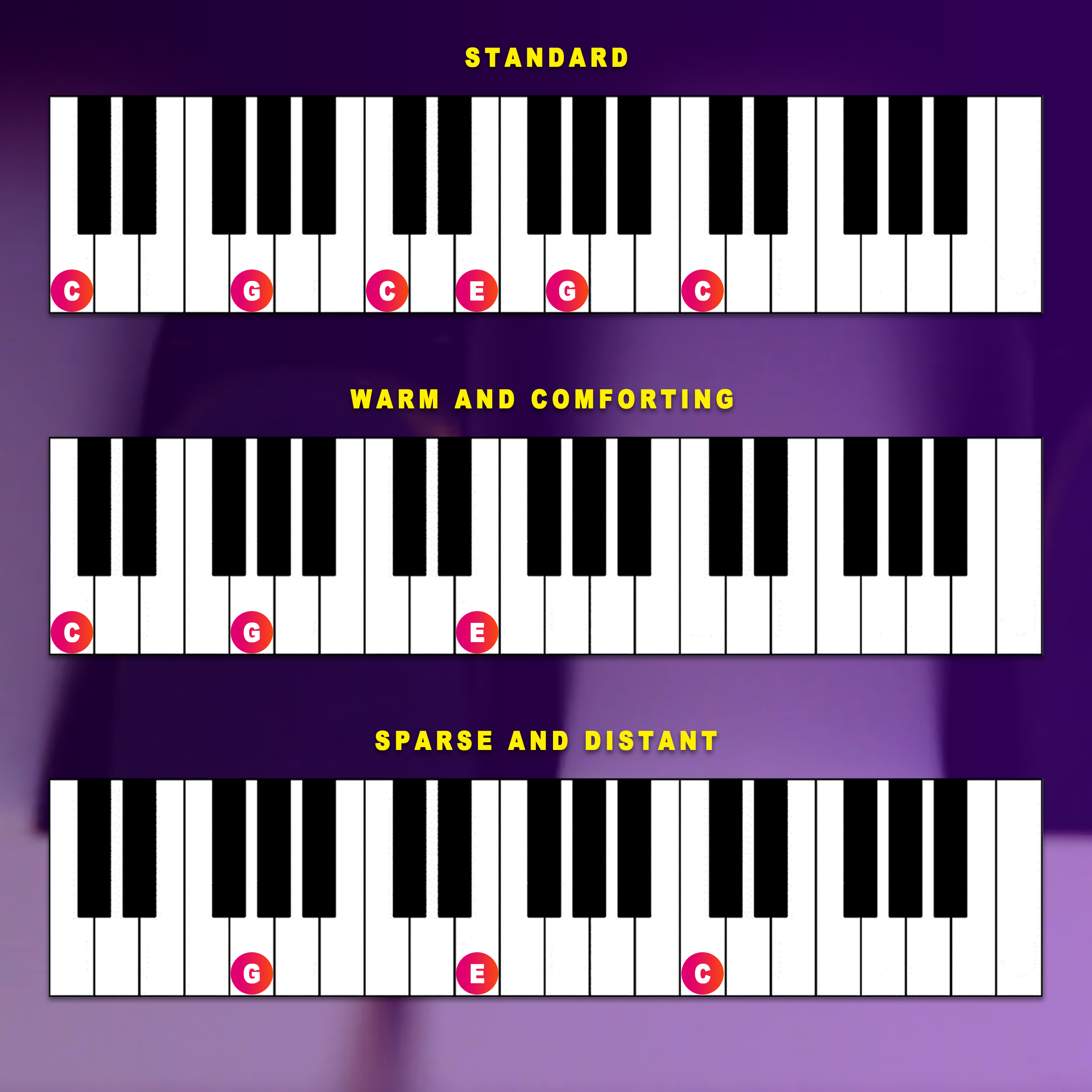
Why Tension and Release is So Important in Music!
Playing and listening to music is an inherently emotional experience and the emotions that are being conveyed is determined by many factors. One moment the music may be quiet and the next, it might be loud. Another section may be using low pitched notes and then it might change to a higher pitched section.

The Importance of Repetition in Music
Repetition is not only a key feature of music, but it permeates every part of music creation. There are actually many reasons for this and these reasons can help us understand music much better and perhaps even inform us as to how to approach playing music if we can work out why the repetition is being used!

The Art of Modulating a Piece of Music
When writing music there is an endless amount of possibilities as to what you can write. Every chord choice and melody note tells us something new. Yet, when you come to learn about music theory, it can appear like there aren’t really that many options. There are 7 notes in a scale and there are 7 triads to choose from (sometimes with some extra notes added to those triads for some extra spice).

Does Playing One Instrument Help You Learn Another?
Throughout my many years learning, recording and performing music, there have been many occasions where I have been required to play various instruments other than the piano.
I have played the saxophone in concert bands, the guitar in jazz bands and various other bands, the violin, viola and cello in orchestras and string quartets, the mandolin and ukulele in folk recordings and I’ve also played the drums and bass guitar in rock bands.

Why Do We Have Different Clefs in Music?
One of the most important symbols to understand when learning to read music is the various clefs that you will come across. Unlike many symbols in music reading, a clef can leave you playing the completely wrong notes if you aren’t familiar with them.
So what actually is a clef?
Well, a clef is a symbol that is at the start of each line (system) in a piece of music. There are 4 main clefs that are important to understand; treble, bass, tenor and alto clefs!

5 Concepts for a Better Understanding of Music
Understanding music theory is incredibly advantageous when it comes to reading or hearing a piece of music and being able to fully understand and interpret what you are playing.
When I first started my journey in music, I was of the mindset that I just wanted to play music and didn’t feel like there was any reason to overcomplicate it. However, later on in my playing career I came to realise that without any way of understanding and interpreting music, you become reliant on others to tell you how to play. Which can mean that you never fully connect to what you are doing or why you are doing it!

Tips for Better Sight-Reading Practice
Sight reading is the ability to instantly read and play a piece of music that you haven’t seen before. It is a difficult skill to master and it can be a very frustrating one to learn. However, this is often because players put a lot of pressure on what is required for building the skill and zero focus on actually practicing it!

How to Arrange Music for Different Instruments
Arranging music can be a fun way of playing some of your favourite pieces of music and making them your own. Not only are you able to completely change the style and sound of a song, but you can also change the instrumentation to any instruments that you want.
But…how do you actually do it? How do you approach it?

When Have You Practiced Enough?
Practicing an instrument is a fine balance between under-practicing and over-practicing. If you don’t practice enough then the chances are that you aren’t going to progress as quickly as you could, you may even find that you don’t progress at all. Whereas if you over-practice then you can start making mistakes that you wouldn’t usually make, which can undo a lot of the work you have put in so far and it can feel quite demoralising.

How to Know What to Learn and When to Learn It on the Piano
At the beginning of learning an instrument, contrary to popular belief, there is actually no single obvious path that you can take. There are many ways to approach learning and many routes that you might want to take to best achieve your goals. In the past, most teachers and method books would go through the process of learning the piano in much the same way. First you learn to read notes, some basic scales and theory along the way and then you slowly integrate pieces that are progressively more challenging…until you are a piano genius! This is still an great way of learning, however, I would argue that today many piano learners have different goals and no longer wish to learn in this way and it’s not always necessary or the best method either.

How to Break Through the Intermediate Pianist Plateau
At the beginning of learning the piano there is a lot to learn; what the notes on the piano are, how to read notes and note rhythms, how to get your fingers to cooperate with you and some of the theory behind how we understand music. So, at the very beginning it can be very exciting because not only do we already have the motivation to learn, but we are also taking on so much information and we can see how we are improving day-by-day.

Structuring the Perfect Practice Session
One of the most common reasons that those new to learning an instrument often feel like they aren’t progressing as fast as they could be, is because being able to practice well is a skill within itself. Not only that, but there are many practicing traps that a new learner can fall into and it can become difficult to start changing your routine and the way that you approach practicing.
So how could you actually practice in order to get better as efficiently as possible? What needs to be included in a practice session and why?

The Three Types of Minor
When learning music, minor scales and minor keys can be a confusing topic. Although many musicians begin with learning major scales and keys, when it comes time to venture into the realm of minor…it ain’t so simple! So hopefully in this post I’m going to explain and demystify the difference between major and minor and what the different types of minor scales mean!
In music, when a piece of music is in a major key and therefore using a major scale, there is only one set of notes to worry about. Let’s say we have a piece of music that is in the key of C major, this piece of music will be using notes from a C major scale - which are C D E F G A B. All of the melodies and chords will be made up from these notes that make up the C major scale.

6 Tips for Learning to Improvise on the Piano
Learning to improvise in music is a very unique skill and much like when we have a conversation (and essentially improvise with words), your hands need to be very comfortable with the patterns that make up the language of music. This is why initially it is best to systematise your improvisation so that you are able to clearly think through the process in your head as you are playing.
So when starting an improvisation you first need to select the scale that you are going to be using, then from here you can either play a melody and pick chords that work with your melody notes, or you can play chords and pick a melody that works with your chords.

5 Interesting Ways to Play Chords on the Piano
Much of music can be understood by the chords and melodies that make up a piece of music. This means that if you are writing your own music, writing an arrangement of a piece of music, improvising or playing from a chord chart, the chords you choose and/or the way that you play those chords can have a massive impact on how the piece of music sounds and feels.
There are many ways that you can play chords, but one of the most frequent requests I get is for some interesting chord patterns to help vary the way that the chords sound. However, its important to understand that you can play any combinations of the notes that make up a chord and each player will prefer different patterns and associate them with different effects.

Do You Need a Teacher to Learn Music Effectively?
A question that I get asked frequently (particularly as my content has reached more self-taught learners) is; do you NEED a teacher in order to get good at music?
In isolation, this is a rather more difficult question to answer then it initially might appear because it largely depends on two things; what is meant by “good at music” and what perceived rate of progression do you need in order to stay committed and continue to feel excited about learning the instrument!

Dealing With Performance Anxiety
Performance anxiety is something that most musicians are very well acquainted with. It can be a feeling of slight nervousness that can heighten awareness and improve a performance, or it can be a feeling of complete dread that is debilitating and prevents you from achieving your full potential. However, performing doesn’t need to be an activity filled with fear and there are many ways to temper and harness performance anxiety so that it becomes a benefit to you, rather than a hindrance.

6 Things I Wish I’d Known When Learning Music
Since the invention of piano competitions and the marking system used for graded exams, there have been many attempts at quantifying what “success” looks like for learning an instrument. This has some merits, it enables us to see how we are doing and feel a sense of constant progression and this can be motivating.
However, a negative consequence of this is the constant comparison to others that you might end up feeling. Ultimately, music isn’t a quantifiable endeavour and everyone has different strengths and weaknesses. Music requires a vast array of skills and what is your strength may be someone else’s weakness.

The 4 Stages of Learning to Read Sheet Music
At the start of any musicians journey into music, the first stage in the process of reading is understanding how to read the notes and learning to recognise them quickly.
There are several ways that are often used to do this and some are more affective than others for long term progress. Many musicians use mnemonic to find the notes on the page. For example, for the treble clef (the way we generally read notes for the right hand on the piano) you may have heard the mnemonic “Every Good Boy Deserves Food” (or something similar to this) to remember the notes that make up the lines on the page.

How to Approach Writing Original Music
For many, writing original music is an appealing prospect. In some respects it is the epitome of what it means to be a musician and not only is there no correct way of doing it, but it is also an incredibly personal experience. The process of creating your own music is one of exploration, going in search of a particular mood or feeling that you want to create and an attempt at representing yourself or a story using the language of music.